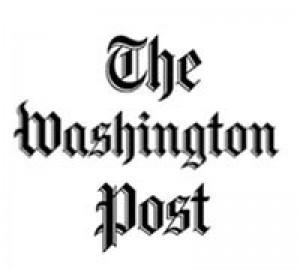
A bipartisan Senate proposal emerged Wednesday to rescue beleaguered federal transportation funding by raising the tax on gasoline by 12 cents a gallon. The proposal to hike the 18.4 cent federal tax for the first time since 1993 came from Sens. Chris Murphy (D-Conn.) and Bob Corker (R-Tenn.) and won quick endorsement from an array of advocates ranging from road builders to AAA.
In addition to increasing the tax by six cents in each of the next two years, the senators want the rate indexed to inflation. Failure to keep pace with inflation over the past 20 years, along with steadily increasing fuel economy, have caused the Federal Highway Trust Fund that receives the money to sink to a dangerous level.
The Transportation Department projected this week that the fund would no longer be able to meet its obligations by mid-summer. The Obama administration, citing a fragile economic recovery, has been reluctant to endorse a gas tax increase. Members of Congress facing midterm elections have preferred to look to other sources.
“For too long, Congress has shied away from taking serious action to update our country’s aging infrastructure,” Murphy said. “We’re currently facing a transportation crisis that will only get worse if we don’t take bold action to fund the Highway Trust Fund. Raising the gas tax isn’t an easy choice, but we’re not elected to make easy decisions.”
The White House has heard some echo from Capitol Hill for its plan to fund transportation through corporate tax reform, but the notion has little momentum and implementation would take too long to meet the immediate need.
Rep. John Delaney (D-Md.) has bipartisan backing for his plan to fund transportation by letting U.S. corporations bring home their burgeoning offshore bank accounts at a reduced tax rate.
“Many Americans are willing to pay a little more if it will lead to improved transportation and a better commute,” said Bob Darbelnet, president of AAA. He cited a AAA survey that found 52 percent of those questioned were willing to pay more to fund roads, bridges and mass transit.
Patrick D. Jones, head of the International Bridge, Tunnel and Turnpike Association, called the Murphy-Corker plan a “gutsy” proposal.
“While there is not much stomach for increasing fuel taxes in an election year, motorists have said in numerous polls that they would be willing to pay higher fees to support road infrastructure if they know where the money is going,” Jones said. “That means spending it on road construction and repairs.”
But even with indexing to inflation, Jones said, the fuel tax is not a sustainable source of long-term funding.
“That’s why we also support the Obama administration’s proposal to eliminate the prohibition on tolling existing interstate highways,” he said.
The bipartisan advocacy group Transportation for America and the Associated General Contractors of America also backed the increase proposal.
“Proposed short-term patches using accounting gimmicks have been all but shot down in both houses,” said James Corless, director of Transportation for America.
“The threat that the highway trust fund will not have enough money to meet our current obligations starting later this summer has already forced transportation officials to delay needed repairs and shelve long-planned expansion projects,” said Stephen E. Sandherr, head of the contractors group.
The conservative Club for Growth, particularly influential with House Republicans, denounced the proposal as “throwing more money into a black hole.” The group favors what’s known as devolution, in which money and decisions about spending it would be given to state and local governments.
“This is a $164 billion dollar tax increase, plain and simple. A gas tax hike would be both bad policy and terribly anti-growth,” said Chris Chocola, the group’s president. “Rather than perpetuate this failed system, Congress should devolve highway funding to the states and let them fund their own infrastructure needs.”
The Highway Trust Fund provides more than half of the country’s spending on transportation projects, and many states get about half their transportation money from Washington.

